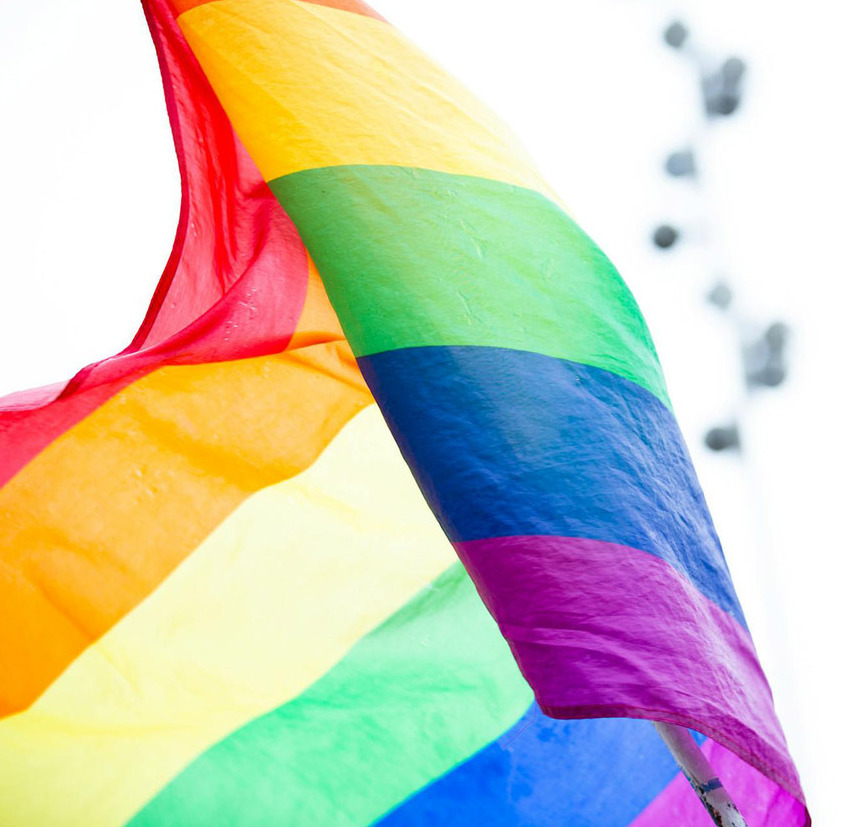Christ UMC, Rockford, Endures Sanctuary Fire
Christ United Methodist Church in Rockford suffered a fire on Monday night, Feb. 23, that started in its organ. Thanks to the fast response of the few in the building at the time, d…
For those of us here at Friendship United Methodist Church in Bolingbrook, being a Reconciling community means making a public promise: that the grace we share at the table and font will be reflected in how we behave in the pews and on the sidewalk. At Friendship UMC, this promise is a core part of who we are.
We became a Reconciling Congregation in March 2020, and our published welcome affirms that people of every age, race, ethnicity, culture, language, ability, neurodiversity, family structure, economic circumstance, citizenship status, and every sexual orientation and gender identity are not only included but fully celebrated as vital members of Christ’s body. A version of this welcome appears on our homepage and is repeated in the “About” section as a guide for our ministry.

Being a Reconciling church influences how we function. Each week, visitors can observe small yet meaningful differences, such as in the tone of our prayers, how we welcome newcomers, and the types of ministries we support over time. Friendship’s Justice, Equity, Diversity, and Inclusion (JEDI) gathering meets regularly to help us grow as beloved community through learning, prayer, and action; our 24/7 Micro Food Pantry operates on the simple ethic “take what you need, leave what you can,” a neighbor-to-neighbor act of care launched in 2020; and the monthly PFLAG meeting brings together LGBTQ+ individuals with families, friends, and allies for conversation, support, and hope. These actions reflect how we understand discipleship in our neighborhood.
This congregational story unfolds within the broader context of United Methodist history. In 2024, the United Methodist General Conference removed the 52-year-old statement that called “the practice of homosexuality . . . incompatible with Christian teaching,” revised the Social Principles accordingly, and ended church-law bans that penalized clergy for officiating same-sex weddings or being in same-sex relationships, while leaving pastoral discretion about which weddings to celebrate intact.
For many of us, these actions did not seem revolutionary. They read more like a form of repentance: a long-prayed-for return to grace as our primary language and pastoral care as our instinct.
Scripture prepares us to offer such a welcome. In the Gospels, Jesus consistently focuses on those whom religion had pushed to the margins: eating with the excluded, healing those considered “unclean,” and sharing stories in which heaven will not rest until the lost are found.
In Acts 10, the Spirit challenges Peter’s traditional ideas of purity and opens a Gentile Pentecost, teaching the church to honestly say, “God shows no partiality.” Paul bases our belonging not on status or category but on baptismal identity: “As many of you as were baptized into Christ have clothed yourselves with Christ . . . all of you are one in Christ Jesus” (Gal. 3:27–28). Seen in this light, the 2024 decisions do not move us away from Scripture; they align UMC discipline with the Gospel’s trajectory.
Wesleyan theology deepens this connection. John Wesley taught us to trust in grace, from the prevenient welcome to the justifying embrace and to the sanctifying renewal that leads to acts of mercy and justice. Methodists have, though hesitantly, revised policies as the Spirit’s fruit has outpaced our rules: we moved toward abolition of slavery, acknowledged women’s calls to ordained leadership (with full clergy rights in 1956), and established ministries among the poor and imprisoned. To be Reconciling today is to stay within that tradition, allowing Scripture, tradition, reason, and experience (how Albert Outler summarized the Wesleyan way of doing theology) to guide us toward love’s growth.

Friendship is also part of the Reconciling Ministries Network, a movement that helps United Methodists embrace LGBTQ+ inclusion locally and advocate for justice throughout the church. RMN’s staff and board members represent a diverse range of talents that guide congregations, support leaders, and connect thousands of Reconciling ministries and individuals worldwide.
Because reconciliation is both spiritual and practical, we guide neighbors to trusted resources. One clear example is Partners in Pride® (Bolingbrook and Ottawa), whose founder, Jameson Pagano, and Ann Natale, counseling intern and administrative coordinator, are active members of our congregation. Partners in Pride® provides outpatient mental health counseling, support groups, and community resources for LGBTQ+ adults and youth (including telehealth).
When someone feels safe and seen, healing can begin —and the church is at its best when we help make that happen. What emerges from all of this is a different kind of unity: one that creates space for a critical conscience, consciousness-raising, and context, without neglecting the Gospel’s call to love. If you've been told there's no place for you in church, come and see.
If you or someone you love has been hurt by religion, you are welcome to be with us. You can talk and we will listen with intention and attention. If you're looking to be heard and connect with people who are open to learning and unlearning together, we invite you to visit us.
We don’t pretend to know it all. And yet, we are committed to learning with and from all. If you're searching for a congregation where Scripture is read through the lens of grace, where Wesley’s “holiness of heart and life” is reflected in the abundance of food on shelves, allies in the room, and a people who smile at you—this is your invitation.
Our promise is simple, and we mean it: as a community of faith, transformed by love and grace, we aim to move from saying “all are welcome” to living “all are home.”
Christ United Methodist Church in Rockford suffered a fire on Monday night, Feb. 23, that started in its organ. Thanks to the fast response of the few in the building at the time, d…
For nearly a century, housing has been part of Humboldt Park United Methodist Church’s ministry. Now, through a partnership with LUCHA, the church’s 98-year-old building is being tran…
Reflecting on scripture and Building Beloved Community, Bishop Dan Schwerin contrasts God’s love-shaped authority with the fear-driven authoritarianism se…
The Northern Illinois Conference has reached 100 percent of its $754,348 commitment to the denominational fund established in response to the Boy Scouts of America settlement. Through the Repair th…